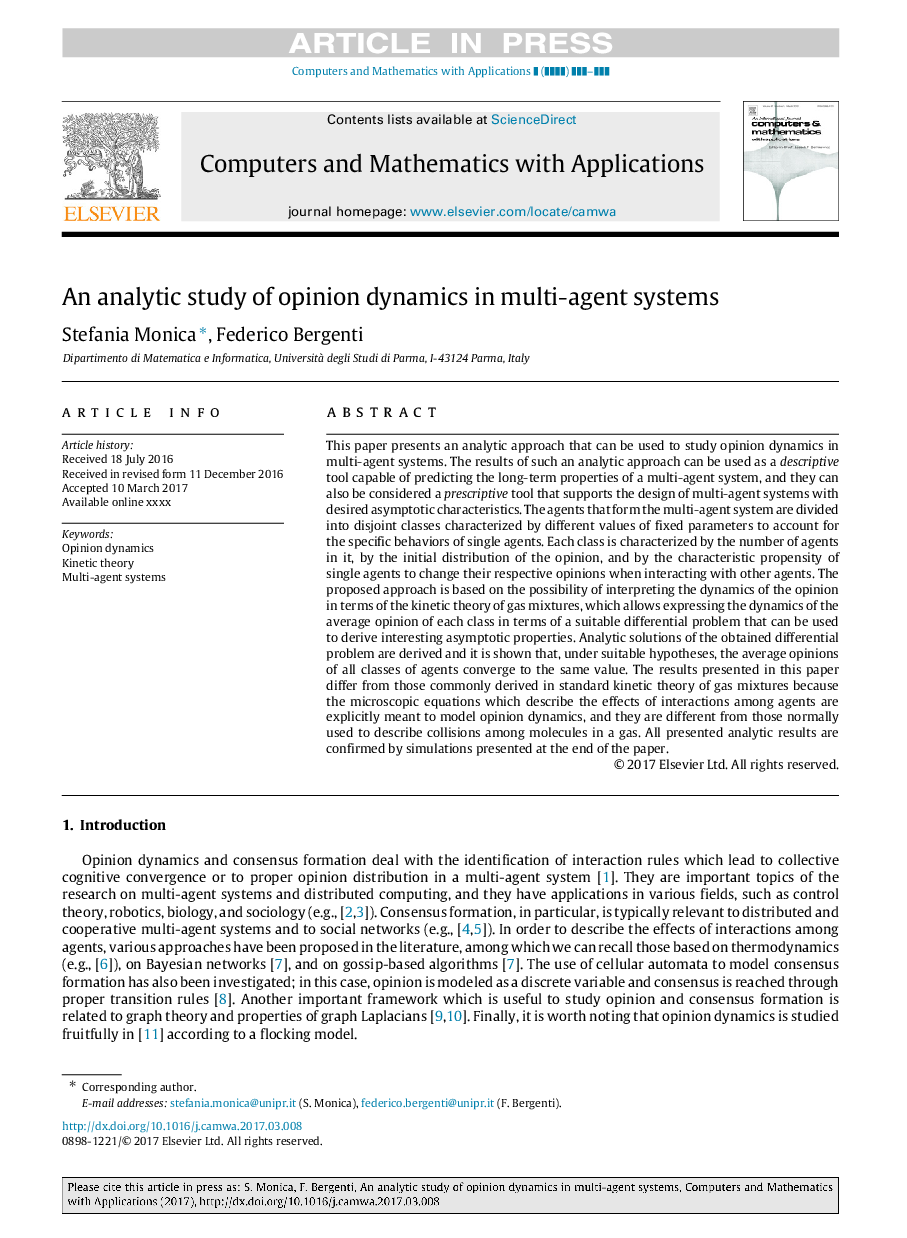| Article ID | Journal | Published Year | Pages | File Type |
|---|---|---|---|---|
| 4958503 | Computers & Mathematics with Applications | 2017 | 13 Pages |
Abstract
This paper presents an analytic approach that can be used to study opinion dynamics in multi-agent systems. The results of such an analytic approach can be used as a descriptive tool capable of predicting the long-term properties of a multi-agent system, and they can also be considered a prescriptive tool that supports the design of multi-agent systems with desired asymptotic characteristics. The agents that form the multi-agent system are divided into disjoint classes characterized by different values of fixed parameters to account for the specific behaviors of single agents. Each class is characterized by the number of agents in it, by the initial distribution of the opinion, and by the characteristic propensity of single agents to change their respective opinions when interacting with other agents. The proposed approach is based on the possibility of interpreting the dynamics of the opinion in terms of the kinetic theory of gas mixtures, which allows expressing the dynamics of the average opinion of each class in terms of a suitable differential problem that can be used to derive interesting asymptotic properties. Analytic solutions of the obtained differential problem are derived and it is shown that, under suitable hypotheses, the average opinions of all classes of agents converge to the same value. The results presented in this paper differ from those commonly derived in standard kinetic theory of gas mixtures because the microscopic equations which describe the effects of interactions among agents are explicitly meant to model opinion dynamics, and they are different from those normally used to describe collisions among molecules in a gas. All presented analytic results are confirmed by simulations presented at the end of the paper.
Related Topics
Physical Sciences and Engineering
Computer Science
Computer Science (General)
Authors
Stefania Monica, Federico Bergenti,
